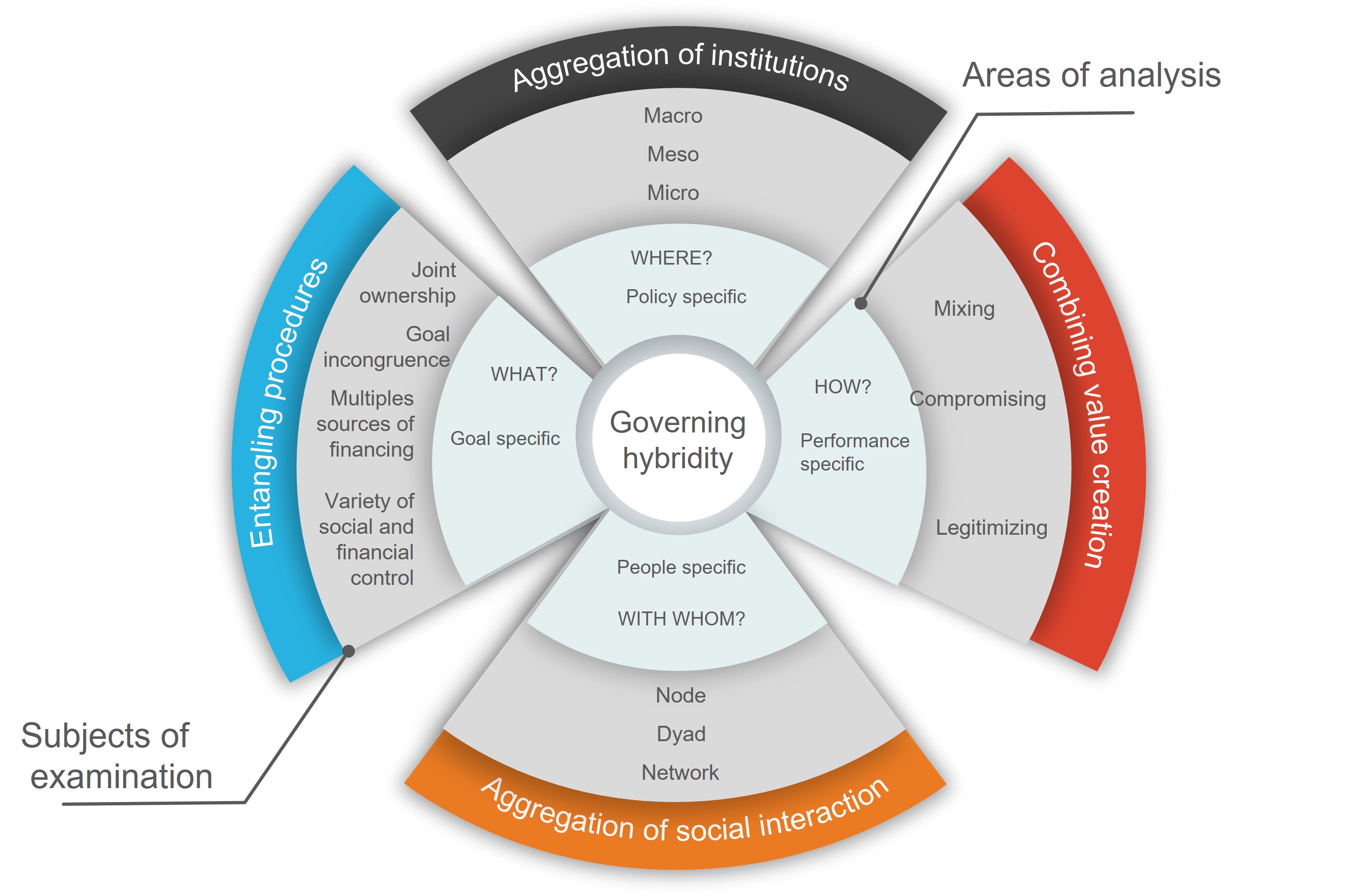|
Municipally Owned Corporation
A municipally owned corporation is a corporation owned by a municipality. They are typically "organisations with independent corporate status, managed by an executive board appointed primarily by local government officials, and with majority public ownership." Some municipally owned corporations rely on revenue from user fees, distinguishing them from agencies and special districts funded through taxation. Municipally owned corporations may also differ from local bureaucracies in funding, transaction costs, financial scrutiny, labour rights, permission to operate outside their jurisdiction, and, under some circumstances, in rights to make profits and risk of bankruptcy. The causes and effects of municipally owned corporations are posited to be different from those of state-owned enterprises. Corporatization may be more utilised locally rather than nationally allowing more hybrid or flexible forms of public service delivery such as public-private partnerships and inter-municipal ... [...More Info...] [...Related Items...] OR: [Wikipedia] [Google] [Baidu] |
Corporation
A corporation or body corporate is an individual or a group of people, such as an association or company, that has been authorized by the State (polity), state to act as a single entity (a legal entity recognized by private and public law as "born out of statute"; a legal person in a legal context) and recognized as such in Corporate law, law for certain purposes. Early incorporated entities were established by charter (i.e., by an ''ad hoc'' act granted by a monarch or passed by a parliament or legislature). Most jurisdictions now allow the creation of new corporations through List of company registers, registration. Corporations come in many different types but are usually divided by the law of the jurisdiction where they are chartered based on two aspects: whether they can issue share capital, stock, or whether they are formed to make a profit (accounting), profit. Depending on the number of owners, a corporation can be classified as ''aggregate'' (the subject of this articl ... [...More Info...] [...Related Items...] OR: [Wikipedia] [Google] [Baidu] |
Privatization
Privatization (rendered privatisation in British English) can mean several different things, most commonly referring to moving something from the public sector into the private sector. It is also sometimes used as a synonym for deregulation when a heavily regulated private company or industry becomes less regulated. Government functions and services may also be privatised (which may also be known as "franchising" or "out-sourcing"); in this case, private entities are tasked with the implementation of government programs or performance of government services that had previously been the purview of state-run agencies. Some examples include revenue collection, law enforcement, water supply, and prison management. Another definition is that privatization is the sale of a state-owned enterprise or municipally owned corporation to private investors; in this case shares may be traded in the public market for the first time, or for the first time since an enterprise's previous natio ... [...More Info...] [...Related Items...] OR: [Wikipedia] [Google] [Baidu] |
Types Of Business Entity
A business entity is an entity that is formed and administered as per corporate law in order to engage in business activities, charitable work, or other activities allowable. Most often, business entities are formed to sell a product or a service. There are many types of business entities defined in the legal systems of various countries. These include corporations, cooperatives, partnerships, sole traders, limited liability companies and other specifically permitted and labelled types of entities. The specific rules vary by country and by state or province. Some of these types are listed below, by country. For guidance, approximate equivalents in the company law of English-speaking countries are given in most cases, for example: *private company limited by shares or Ltd. (United Kingdom, Ireland, and the Commonwealth) *public limited company (United Kingdom, Ireland, and the Commonwealth) *limited partnership * general partnership * chartered company *statutory corporation ... [...More Info...] [...Related Items...] OR: [Wikipedia] [Google] [Baidu] |
Public Economics
Public economics ''(or economics of the public sector)'' is the study of government policy through the lens of economic efficiency and Equity (economics), equity. Public economics builds on the theory of welfare economics and is ultimately used as a tool to improve social welfare. Welfare can be defined in terms of well-being, prosperity, and overall state of being. Public economics provides a framework for thinking about whether or not the government should participate in economic markets and if so to what extent it should do so. Microeconomic theory is utilized to assess whether the private market (economics), market is likely to provide efficient outcomes in the absence of governmental interference; this study involves the analysis of government taxation and government spending, expenditures. This subject encompasses a host of topics notably market failures such as, Public good (economics), public goods, externalities and Imperfect competition, Imperfect Competition, and the cr ... [...More Info...] [...Related Items...] OR: [Wikipedia] [Google] [Baidu] |
Public Administration
Public administration, or public policy and administration refers to "the management of public programs", or the "translation of politics into the reality that citizens see every day",Kettl, Donald and James Fessler. 2009. ''The Politics of the Administrative Process''. Washington D.C.: CQ Press and also to the academic discipline which studies how public policy is created and implemented. In an academic context, public administration has been described as the study of government decision-making; the analysis of policies and the various inputs that have produced them; and the inputs necessary to produce alternative policies. It is also a subfield of political science where studies of policy processes and the structures, functions, and behavior of public institutions and their relationships with broader society take place. The study and application of public administration is founded on the principle that the proper functioning of an organization or institution relies on effectiv ... [...More Info...] [...Related Items...] OR: [Wikipedia] [Google] [Baidu] |
Government Corporations
A state-owned enterprise (SOE) is a business entity created or owned by a national or local government, either through an executive order or legislation. SOEs aim to generate profit for the government, prevent private sector monopolies, provide goods at lower prices, implement government policies, or serve remote areas where private businesses are scarce. The government typically holds full or majority ownership and oversees operations. SOEs have a distinct legal structure, with financial and developmental goals, like making services more accessible while earning profit (such as a state railway). They can be considered as government-affiliated entities designed to meet commercial and state capitalist objectives. Terminology The terminology around the term state-owned enterprise is murky. All three words in the term are challenged and subject to interpretation. First, it is debatable what the term "state" implies (e.g., it is unclear whether municipally owned corporations and ente ... [...More Info...] [...Related Items...] OR: [Wikipedia] [Google] [Baidu] |
Corporations By Type
A corporation or body corporate is an individual or a group of people, such as an association or company, that has been authorized by the state to act as a single entity (a legal entity recognized by private and public law as "born out of statute"; a legal person in a legal context) and recognized as such in law for certain purposes. Early incorporated entities were established by charter (i.e., by an ''ad hoc'' act granted by a monarch or passed by a parliament or legislature). Most jurisdictions now allow the creation of new corporations through registration. Corporations come in many different types but are usually divided by the law of the jurisdiction where they are chartered based on two aspects: whether they can issue stock, or whether they are formed to make a profit. Depending on the number of owners, a corporation can be classified as ''aggregate'' (the subject of this article) or '' sole'' (a legal entity consisting of a single incorporated office occupied by a sing ... [...More Info...] [...Related Items...] OR: [Wikipedia] [Google] [Baidu] |
Companies By Type
A company, abbreviated as co., is a legal entity representing an association of legal people, whether natural, juridical or a mixture of both, with a specific objective. Company members share a common purpose and unite to achieve specific, declared goals. Over time, companies have evolved to have the following features: "separate legal personality, limited liability, transferable shares, investor ownership, and a managerial hierarchy". The company, as an entity, was created by the state which granted the privilege of incorporation. Companies take various forms, such as: * voluntary associations, which may include nonprofit organizations * business entities, whose aim is to generate sales, revenue, and profit * financial entities and banks * programs or educational institutions A company can be created as a legal person so that the company itself has limited liability as members perform or fail to discharge their duties according to the publicly declared incorporation pu ... [...More Info...] [...Related Items...] OR: [Wikipedia] [Google] [Baidu] |
Capitalism
Capitalism is an economic system based on the private ownership of the means of production and their use for the purpose of obtaining profit. This socioeconomic system has developed historically through several stages and is defined by a number of basic constituent elements: private property, profit motive, capital accumulation, competitive markets, commodification, wage labor, and an emphasis on innovation and economic growth. Capitalist economies tend to experience a business cycle of economic growth followed by recessions. Economists, historians, political economists, and sociologists have adopted different perspectives in their analyses of capitalism and have recognized various forms of it in practice. These include '' laissez-faire'' or free-market capitalism, state capitalism, and welfare capitalism. Different forms of capitalism feature varying degrees of free markets, public ownership, obstacles to free competition, and state-sanctioned social poli ... [...More Info...] [...Related Items...] OR: [Wikipedia] [Google] [Baidu] |
Multiple Principal Problem
The multiple principal problem, also known as the common agency problem, the multiple accountabilities problem, or the problem of serving two masters, is an extension of the principal-agent problem that explains problems that can occur when one person or entity acts on behalf of multiple other persons or entities. Specifically, the multiple principal problem states that when one person or entity (the " agent") is able to make decisions and / or take actions on behalf of, or that impact, multiple other entities: the " principals", the existence of asymmetric information and self-interest and moral hazard among the parties can cause the agent's behavior to differ substantially from what is in the joint principals' interest, bringing large inefficiencies. The multiple principal problem has been used to explain inefficiency in many types of cooperation, particularly in the public sector, including in parliaments, ministries, agencies, inter-municipal cooperation, and public-private part ... [...More Info...] [...Related Items...] OR: [Wikipedia] [Google] [Baidu] |
Hybrid Organization
A hybrid organization is an organization that mixes elements, value systems and action logics (e.g. social impact and profit generation) of various sectors of society, i.e. the public sector, the private sector and the voluntary sector. A more general notion of hybridity can be found in Hybrid institutions and governance. According to previous research hybrids between public and private spheres consist of following features: # Shared ownership. # Goal incongruence and different institutional logics in the same organisation. # Variety in the sources of financing. # Differentiated forms of economic and social control. Value creation in hybrids proceeds through three mechanisms: # mixing, # compromising, # legitimizing. Mixing distinct value categories may take several forms. One common feature of these forms is the act of combining existing value categories to contribute novel variants of value. Compromising concern solving grievances among the interacting parties. From the le ... [...More Info...] [...Related Items...] OR: [Wikipedia] [Google] [Baidu] |
Public Services
A public service or service of general (economic) interest is any service (economics), service intended to address the needs of aggregate members of a community, whether provided directly by a public sector agency, via public financing available to private businesses or voluntary organisations, or by private businesses subject to government regulation. Some public services are provided on behalf of a government's residents or in the public interest, interest of its citizens. The term is associated with a social consensus (usually expressed through democratic elections) that certain services should be available to all, regardless of income, physical ability or intelligence, mental acuity. Examples of such services include the Fire department, fire services, police, air force, paramedics and public broadcasting, public service broadcasting. Even where public services are neither publicly provided nor Public finance, publicly financed, they are usually subject to regulation beyond ... [...More Info...] [...Related Items...] OR: [Wikipedia] [Google] [Baidu] |





